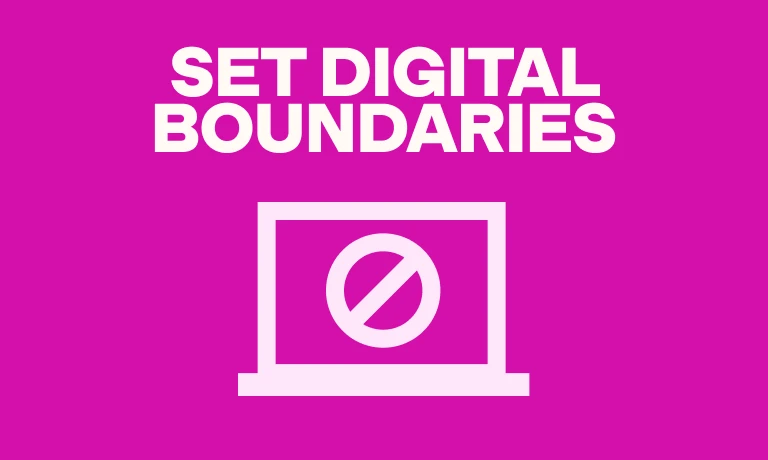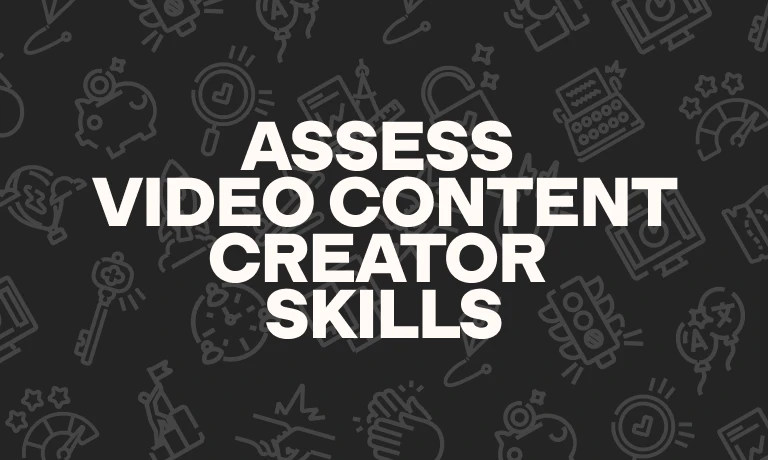ISFP “Adventurers” can add a splash of creativity and flexibility to your team. But it's key to learn their strengths and quirks early on so you don’t put them into positions they’re not ideal for.
ISFPs love their freedom and creative space, so super-structured roles can hamper their dynamism and innovative abilities. This could lead to poor job satisfaction and make them more likely to leave, increasing your turnover costs.
Luckily, TestGorilla has got you covered. We offer both personality tests and skills tests to give you the full picture of an ISFP candidate.
In this article, we'll walk you through their unique qualities and how they mesh with different work environments, plus share tips on how to attract and assess these creative dynamos.
ISFP Candidates: Key strengths, limitations, and personality traits
ISFPs are the “Adventurer” in the 16 Personalities test framework. They’re characterized by their artistic nature, sensitivity, and individualistic approach. They’re also known for their ability to connect with their surroundings in a deeply personal way. But they may face challenges in highly structured or conventional settings that limit their creative expression.
Let's explore the strengths and limitations of ISFP types to gain a deeper understanding of this artistic personality profile.
Key strengths of ISFP types
Creativity and aesthetic sense: Highly creative, often excelling in artistic endeavors and bringing a unique perspective to their work.
Adaptability and flexibility: Highly adaptable, comfortable with change, and able to adjust to new situations with ease.
Empathy and sensitivity: Intuitively grasp and resonate with the emotions of others, showcasing a profound empathetic understanding.
Practical skills: Have a knack for practical, hands-on tasks and can solve problems in innovative ways.
Independence: Self-reliant, prizing their autonomy and demonstrating resourcefulness in various situations.
Limitations of ISFP types
Discomfort with long-term planning: May find it challenging to engage in extensive future planning, preferring more flexible and spontaneous environments.
Difficulty with conflict: Shy away from direct confrontations, finding it challenging to navigate situations that involve overt disagreements or disputes.
Reserved nature: Often exhibit a reserved demeanor, particularly in group settings, where they might be hesitant to openly share their thoughts or opinions.
Overwhelmed by criticism: Often find it difficult to handle criticism, tending to take feedback more personally than most.
Inconsistent in following through: May start projects with enthusiasm but struggle to maintain consistency.
Personality traits of ISFP types
ISFPs are imaginative and independent, often thriving in roles that allow for creative freedom and personal expression. They approach tasks with a flexible and open-minded attitude, valuing authenticity over traditional methods.
In project management, an ISFP might focus on ensuring the work environment is harmonious and creatively stimulating. They tend to manage projects with a focus on individual contributions and unique solutions.
Their ability to think outside the box and bring a personal touch to their work makes them valuable in teams, especially in roles that require creativity, adaptability, and a hands-on approach.
What ISFP applicants look for in a workplace
To appeal to ISFPs in the job market, it's important to understand their unique preferences and desires. Here are four key aspects that attract ISFP applicants.
Creative freedom and aesthetic expression
ISFPs are drawn to roles that allow them to express their creativity and individuality. They thrive in positions where they can work on projects that resonate with their personal aesthetic and artistic sensibilities.
To attract ISFP candidates, highlight the creative aspects of the job in your descriptions. Share stories of innovative projects or design-focused initiatives led by employees. During interviews, discuss opportunities for creative expression and how they can bring their personal touch to your organization's projects.
Mentioning specific opportunities for artistic input, like contributing to product design or marketing campaigns, can showcase how their artistic skills will be valued and utilized.
Dynamic and flexible work environments
ISFPs enjoy environments where they can work flexibly and adapt to new, evolving situations. They prefer workplaces that offer them freedom and variety in their tasks.
When recruiting, highlight the role's flexible and dynamic aspects by detailing how it involves working on a variety of projects, each requiring unique solutions. For instance, you could describe a recent project where the team had to quickly adapt to new market trends, leading to an innovative product redesign.
Or share an example of a time when an unexpected client request resulted in a creative and successful marketing campaign. These stories illustrate the adaptability and creativity expected and celebrated in the role, showcasing an environment where ISFPs can thrive on change and innovation.
Personalized and hands-on work experience
Adventurers value hands-on experiences and a personal connection to their work. Showcasing how your company provides opportunities for direct involvement in meaningful projects can be very appealing.
To attract Adventurers during the recruitment process, highlight how candidates can be directly involved in meaningful and impactful projects. For instance, you could mention opportunities to manage small-scale, high-impact projects or to play a significant role in community-focused initiatives.
Growth and self-exploration opportunities
ISFPs seek roles that allow them personal growth and exploration of their interests and talents. Emphasize how your company supports individual journeys, perhaps through offering diverse project experiences or self-directed learning options.
During interviews, share stories of how employees have explored different roles or developed new skills. This illustrates to ISFPs that your company is not just a workplace, but a space where they can continue their self-development.
The best insights on HR and recruitment, delivered to your inbox.
Biweekly updates. No spam. Unsubscribe any time.
How to assess ISFP type candidates
Using personality tests in the hiring process is a good first step to learning about your Adventurer candidates, but you should also consider their job-related skills.
Effective testing methods for ISFP candidates
After interpreting the results of a 16 personalities test, evaluate how your candidates’ motivations and behaviors impact their ability to perform well in the role.
TestGorilla offers a range of pre-employment tests tailored to evaluate creativity, adaptability, and role-specific skills, essential for understanding an ISFP's capabilities.
For instance, ISFPs are known for their creative problem-solving. TestGorilla’s Design Thinking test identifies candidates with strong innovative potential and the ability to think outside the box.
ISFPs are also skilled in hands-on tasks. The Working With Data test assesses your candidates' ability to apply their skills in real-world scenarios involving data analysis and interpretation, evaluating their practical abilities with charts, graphs, and data handling concepts.
To further evaluate their adaptability and flexibility, consider using our Negotiation Skills test. This test measures how well candidates adjust to new situations through empathy and constructive conversation, a key strength of ISFPs.
Knowing the 16 personality types at work is important, but adding skills tests gives you the most accurate picture. TestGorilla’s wide range of tests provides a balanced and objective assessment, focusing on a candidate's practical abilities in job-related tasks.
This method helps minimize common biases, like recruiters favoring certain personalities, by ensuring a balanced evaluation that equally weighs practical skills alongside personality traits, leading to fairer and more effective hiring decisions.
Snag the perfect ISFP talent with TestGorilla
ISFPs can bring a vibrant mix of creativity and adaptability to your team, but it’s crucial to understand their needs and strengths during the hiring process.
If they’re not properly assessed, you might find them mismatched in overly rigid or monotonous roles. This can dampen their creative spirit and abilities, leading to job dissatisfaction and reduced effectiveness.
That’s where TestGorilla steps in. Our blend of personality assessments and skills assessments can give you a complete picture of each ISFP candidate. This way, you can align their creative and adaptable traits with the right roles, ensuring your hiring decisions are beneficial for everyone.
Want to see how it works in action? Ask for a live demo, take a product tour, or sign up for a free account.
Related posts
You've scrolled this far
Why not try TestGorilla for free, and see what happens when you put skills first.














